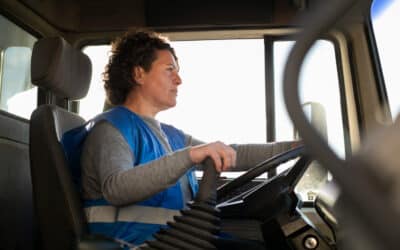In the fight against climate change, reducing carbon emissions has become a top priority. Transportation is a significant contributor to greenhouse gas emissions and reducing carbon emissions in this area will be key to achieving net zero. There has recently been some good news in that area as a recent study has found that carbon emissions from rail travel in the UK are lower than previously estimated.
Rail emissions lower than expected
The Rail Delivery Group (RDG) has recently developed and commissioned a tool that can measure the carbon footprint of a train properly. This new tool can measure seven sets of data during a train journey including engine, fuel, occupancy, journey distance, and carriage layout. Previously carbon emissions on trains was measured by the total energy consumed by the national rail network by the reported number of passenger kilometres travelled.
The new tool (which is more accurate) has found that an electrified rail route from London King’s Cross to Edinburgh Waverley station used 12.5kg/CO2e per passenger compared to the previously estimated figure of 24kg/CO2e per passenger. To put this into perspective compared to other modes of transport, this electrified rail journey produces 10 times less carbon emissions than a car and 13 times less carbon emissions than a plane to do the equivalent journey.
This demonstrates that the actual carbon emissions used on this particular journey is almost half of what it was previously estimated. This more accurate tool will enable travellers to make more informed decisions when choosing what mode of transport to use when travelling.
Why are trains so energy efficient?
Advancements in technology mean that modern electrified trains are very energy efficient. This is because trains are able to carry a large number of passengers which makes them one of the most energy-efficient modes of transport per passenger currently available. Furthermore, the electrification process currently taking place across the railway network is shifting the energy source of trains from fossil fuels to cleaner electric sources of energy.
How can we help?
Hawsons has a dedicated team of specialist transport and logistics accountants in Sheffield, Doncaster, and Northampton.
We act for a large number of clients in this sector across our three offices, ranging from hauliers to international couriers, and understand the challenges this dynamic sector faces.
Nearly every other commercial sector is reliant on the services transport and logistic businesses provide and, in many ways, this specialist sector is the linchpin for our country’s economy.
With our experience in the transport and logistics sector we are able to develop a close understanding of your business and, through active year round involvement, we can help you anticipate and deal with challenges quickly and effectively.
Related content
Digital skills gap found in the logistics sector
Introduction As the world becomes increasingly digitised, industries are facing a pressing need to adapt to technological advancements. The logistics sector, a cornerstone of the UK economy, is no exception. Recent findings from a report by Neos Networks have unveiled...
UK firms failing to digitise their supply chain
A recent survey of businesses containing 250 UK and 250 US respondents firms found that only 61% of UK firms recognised the importance of connecting disparate supply chain data and 20% said they were not using supply chain data at all. Data disparity can come on a...
Skills Bootcamp HGV Driving scheme – 70% government funded course
What is the Skills Bootcamp HGV Driving Scheme? The Skills Bootcamp HGV Driving scheme was set up by the Driver Academy Group (DAG) in December 2021. The scheme is supporting 53 third-party logistics firms to train 122 employees. This scheme is 70% government funded...





